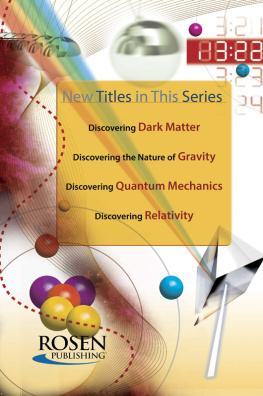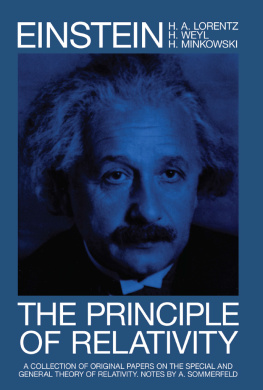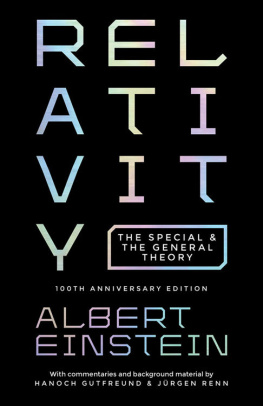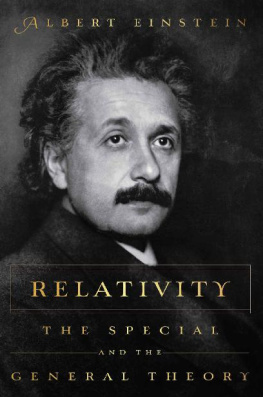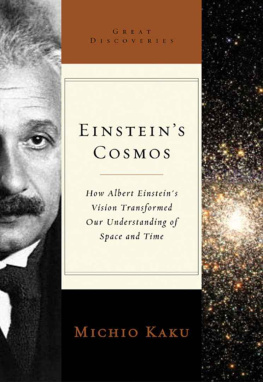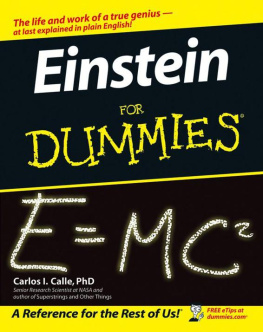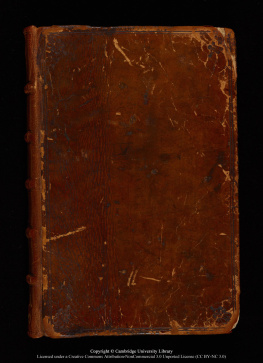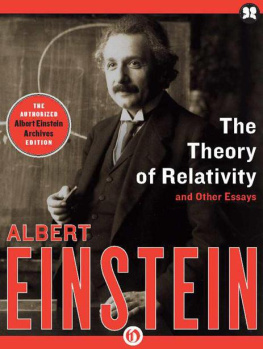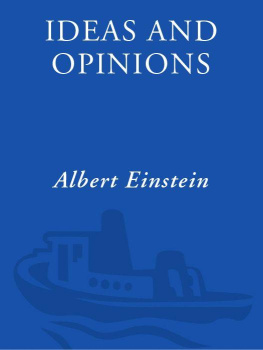SIR ISAAC NEWTON AND ALBERT EINSTEIN
From Absolutism to Relativity
The History Hour
Your Free eBook!
As a way of saying thank you for reading our book, were offering you a free copy of the below eBook.
Happy Reading!
- Click Here -
- To Get Your FREE Ebook! -
Or go thehistoryhour.com/cleo /
Sir Isaac Newton
One of the Greatest Minds of All-Time
Genius is patience.
Sir Isaac Newton
Sir Isaac Newton was one of the finest minds to have ever lived. He was born on the old calendar on Christmas day in 1942, but in the new style of calendar, his birthday would be placed on January 4, 1643. He was born in Lincolnshire in England.
He ended up being a prominent figure in many different aspects of life, but his main body of work was as a physicist and mathematician. He was a part of the scientific revolution in the 17th century, which would fundamentally change the way that people would see the world. In the field of optics, he advanced our understanding of light and how we saw it. In mechanics, he would create his famous three laws of motion, but its in physics that he became most well-known for his understanding of gravity and in mathematics for his discovery of calculus, and his writing is perhaps the single most important scientific book of all-time, the Principia , which is still referenced today.
We build too many walls and not enough bridges.
Sir Isaac Newton
Isaac Newtons life was tragic before the young genius was even born into the hamlet of Woolsthorpe. By the time Newton was born, his father had already passed away three months before. As a beautiful moment of passing the torch from one to the next, Newton was born in the same year that Galileo died, and it could be said that Newton picked up where the Italian had left off.
Newton was born as a small, premature baby who wasnt given a great chance to live. Born without a father, he would soon also be without a mother when he was three; his mother remarried and abandoned Newton to be raised by his grandfather. The tragic loss of his father and then the abandonment by his mother would clearly play a key role in some of the personality traits that he would develop.
For the next 9 years, he would be separated from his mother until his grandmother died. Newton resented his mother and hated his stepfather. He once wrote in his sins that he once threatened to burn them and their house. Newton would go on to be incredibly anxious and irrational, and these traits would stay with him throughout his life.
From the age of 12 to 17, Newton spent time living with a man who provided him lodgings while he studied at Kings School in Grantham. This would be the point where Newton would first develop a real interest in science as he developed a fascination with chemistry. Youd think a man who would go onto become one of the greatest minds of all-time would have done well in school, but he was more interested in knowledge outside of the classroom and wasnt a great student.
At this time, he was removed from school, and his mother made an attempt to make him a farmer, but it was never going to work as Newton hated farming. The master at Kings School though must have seen Newtons talent, and he persuaded his mother to send him back to school. His mother agreed, and Newtons academic performance increased, and he completed the year with an impressive final report.
His Life in Cambridge
I n 1661, Newton would find himself in Trinity College in Cambridge after excelling at his grammar school. He would still find himself in the world of mathematics, but his education would soon take a different path. Due to the delay in him getting to university, due to looking after his mothers land, Newton was slightly older than most of the undergraduates in the college.
At the time Newton set foot in Cambridge, there was already a revolution going on in the world of science. The likes of Copernicus and Kepler had already proven that the sun is at the center of the solar system, and Galileo had laid the groundwork for understanding the laws of inertia. He was in an age where the world was discovering that we werent the center of the universe. This though wasnt an easy process, and the likes of Cambridge were late in accepting this line of thinking as they still got most of their funding from the church.


